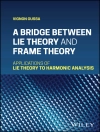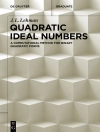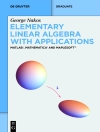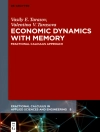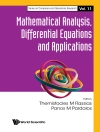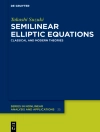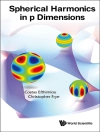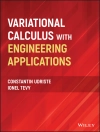This book presents the reader with a streamlined exposition of the notions and results leading to the construction of normal forms and, ultimately, to the construction of smooth conjugacies for the perturbations of tempered exponential dichotomies. These are exponential dichotomies for which the exponential growth rates of the underlying linear dynamics never vanish. In other words, its Lyapunov exponents are all nonzero. The authors consider mostly difference equations, although they also briefly consider the case of differential equations. The content is self-contained and all proofs have been simplified or even rewritten on purpose for the book so that all is as streamlined as possible. Moreover, all chapters are supplemented by detailed notes discussing the origins of the notions and results as well as their proofs, together with the discussion of the proper context, also with references to precursor results and further developments. A useful chapter dependence chart is included in the Preface. The book is aimed at researchers and graduate students who wish to have a sufficiently broad view of the area, without the discussion of accessory material. It can also be used as a basis for graduate courses on spectra, normal forms, and smooth conjugacies.
The main components of the exposition are tempered spectra, normal forms, and smooth conjugacies. The first two lie at the core of the theory and have an importance that undoubtedly surpasses the construction of conjugacies. Indeed, the theory is very rich and developed in various directions that are also of interest by themselves. This includes the study of dynamics with discrete and continuous time, of dynamics in finite and infinite-dimensional spaces, as well as of dynamics depending on a parameter. This led the authors to make an exposition not only of tempered spectra and subsequently of normal forms, but also briefly of some important developments in those other directions. Afterwards the discussion continues with the construction of stable and unstable invariant manifolds and, consequently, of smooth conjugacies, while using most of the former material.
The notion of tempered spectrum is naturally adapted to the study of nonautonomous dynamics. The reason for this is that any autonomous linear dynamics with a tempered exponential dichotomy has automatically a uniform exponential dichotomy. Most notably, the spectra defined in terms of tempered exponential dichotomies and uniform exponential dichotomies are distinct in general. More precisely, the tempered spectrum may be smaller, which causes that it may lead to less resonances and thus to simpler normal forms. Another important aspect is the need for Lyapunov norms in the study of exponentially decaying perturbations and in the study of parameter-dependent dynamics. Other characteristics are the need for a spectral gap to obtain the regularity of the normal forms on a parameter and the need for a careful control ofthe small exponential terms in the construction of invariant manifolds and of smooth conjugacies.
Mục lục
Preface.- 1. Spectra and Examples.- 2. Asymptotic Behavior.- 3. Resonances and Normal Forms.- 4. Parameter-Dependent Dynamics.- 5. The Case of Differential Equations.- 6. Infinite-Dimensional Dynamics.- 7. Stable and Unstable Foliations.- 8. Construction of Smooth Conjugacies.- References
Giới thiệu về tác giả
Luís Barreira is a professor of Mathematics at Universidade de Lisboa – Instituto Superior Técnico, Portugal with a long experience in teaching and research. Ph D in Mathematics from Penn State University, 1996. Received the Gulbenkian Science prize in 2007, the UTL/Santander Totta Mathematics prize in 2007, the Ferran Sunyer i Balaguer prize in 2008 (with the book Dimension and Recurrence in Hyperbolic Dynamics, Birkhäuser), and the UL/CGD Mathematics prize, 2023. Author or co-author of several books published by the AMS, Birkhäuser, Cambridge University Press, Springer, and World Scientific, at various levels (those in English include 8 research monographs and 7 textbooks). Author or co-author of many articles in mathematics, mainly in the areas differential equations and dynamical systems, and mostly in ergodic theory and hyperbolicity theory.
Claudia Valls is a professor of Mathematics at Universidade de Lisboa – Instituto Superior Técnico, Portugal, with a long experience in teaching and research. Ph D in Mathematics from Universitat de Barcelona, 1999. She received the UTL/Santander Totta Mathematics prize in 2008. She is the co-author of 8 books in English published by the AMS, Springer, and World Scientific (include 3 research monographs and 5 textbooks). Author or co-author of many articles in mathematics, mainly in differential equations and dynamical systems, and mostly in integrability theory and hyperbolicity theory.



